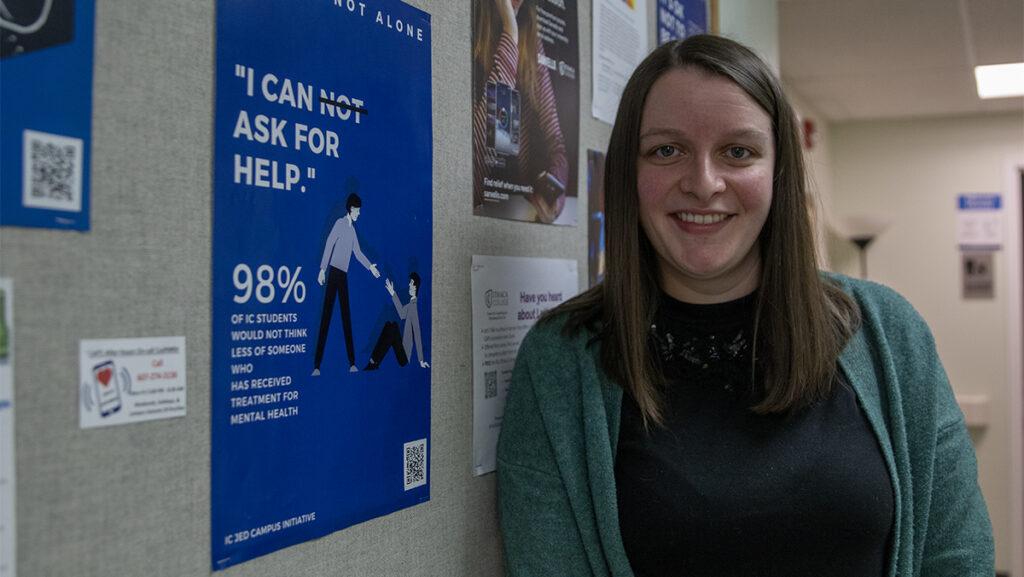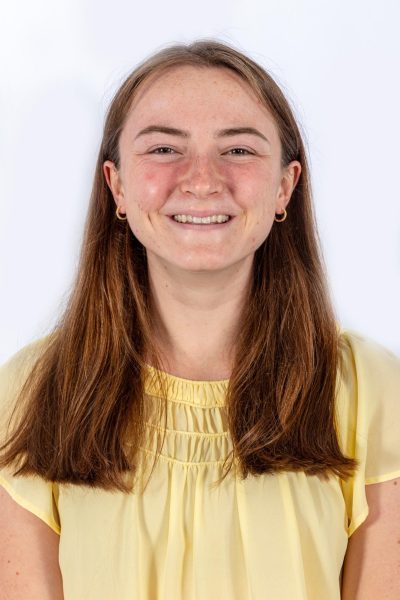Through working with faculty, staff and students, Michelle Goode, program director of Center for Health Promotion at Ithaca College and campus co-chair of the JED Campus Initiative, has implemented new resources and training for mental health awareness.
The college is currently in the third year of the four-year JED campus program, which helps colleges learn how to provide mental health resources for students. Goode said the JED Campus Initiative has five subcommittees composed of students, faculty and staff, which work to implement JED’s resources on campus. The JED team is currently training students and faculty to help students who are struggling with their mental health through the Train the Trainer curriculum. Goode said the JED Campus Initiative hopes to train as many individuals as possible and make mental health training a key part of the campus environment.
The JED Campus Initiative also plans events that provide mental health resources for students. JED works with campus partners to coordinate Stop and Breathe Week, a week of events held during midterms and before finals week to help students destress. JED also offers Anxiety Toolbox Workshops each Monday. Most recently, JED partnered with students from the Public and Community Health major and the Physician’s Assistant program to hold the college’s first Anxiety Screening Day on Feb. 28.
Staff Writer Kai Lincke spoke with Goode about how the JED Campus Initiative is working to make caring for mental health part of campus culture.
This interview has been edited for length and clarity.
Kai Lincke: Is there any work that you’d like to highlight that the subcommittees have been trying to initiate around campus?
Michelle Goode: Our communications subcommittee was able to partner with a student organization called 180 Consulting, and that group helped to put together a mental health campaign. And then in the fall semester, what that communications group worked on was, we didn’t just want to have a campaign out there. We wanted to make sure that if someone saw a poster, and it resonated with them, that there was a call to action. So, each of those posters has a special QR code that links to the JED Canvas website with a specific skill or resource that someone could use, depending on what that poster is. So we’re able to promote a little bit more where can someone seek out mental health support. We have our student connections subcommittee, and that group has been working on right now putting together kind of a flowchart … of, ‘If I’m a student, and I’m looking for student support, where can I find that?’ And they’re really breaking down, “Am I looking for academic support? Am I looking for career support? Am I looking for social support or connection?” … Sometimes there are just so many resources, it’s hard to narrow down what one you might need for the purpose that you need it. They’re working on that material and those tools that we’re hoping to have posted online, and then available starting in the fall semester as posters that could be displayed in different spaces and places.
KL: Are all of these resources targeted toward students? Are there any support options available for staff who have mental health concerns?
MG: I’d say our office or the Center for Health Promotion is primarily focused — and CAPS is primarily focused — on supporting students’ well–being. But there have been some really great opportunities where we could collaborate and offer wellness resources to everyone. I’d say Sanvello is a really great example of that. Where we were thinking, ‘What is it that we could give everyone access to, that is a tool that people can use in the moment if they’re feeling overwhelmed, if they’re feeling stressed out?’ … There’s been some great initiatives … that Human Resources has been trying to lead to really support the wellness of staff and faculty and employees. You know, they just recently sent out a survey to all employees to ask for what is it that [employees] will need to feel supported. So, I’m excited to see what Human Resources decides to do as a result of that survey.
KL: JED is a four-year program, so do you anticipate continuing some of these changes or additions to the campus after the program has been completed?
MG: It is a kind of a four-year relationship. What’s great is once you’re a JED campus, you’re always a JED campus. So we will be able to continue to utilize JED resources and reach out for support if needed. For us, when you go through the JED process, you do some assessments at the beginning. And then you do a second round of assessments toward the end. … We’re coming up where we’ll do the Healthy Mind Survey on campus again, and JED has a full assessment that they have us fill out where they give us recommendations on what might be some gaps. So our intent is once we receive that feedback back from JED again, that we’ll continue to move forward with writing new goals for ourselves and setting new goals.
KL: Is there anything you think that students should know about the JED Campus Initiative or the resources that you provide?
MG: I want students to know they’re not alone, and there are resources. … If they’re not sure how to navigate that, I hope that they know anyone on the JED Campus Committee could be a support to help them find that. … We have a lot of employees here on campus. And we have a lot of students on campus that care about one another and want to be able to connect someone with the resources they might need. … It might take some time to find the right resources that you might need. But know there are things out there, and there are people that support you along that journey.









